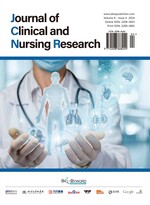Abstract
Objective: To investigate the characteristics of katG and inhA gene mutations in multidrug-resistant tuberculosis (MDR-TB), pre-extensively drug-resistant tuberculosis (preXDR-TB), and their correlation with resistance to protionamide (Pto). Methods: A total of 229 patients with MDR-TB and pre-XDR-TB diagnosed in the Eighth Affiliated Hospital of Xinjiang Medical University from January 2020 to February 2024 were selected to analyze the characteristics of katG and inhA mutations in MTB clinical isolates and their correlation with Pto resistance. Results: The mutation rate of katG (with or without inhA mutation) was 85.2%. The mutation rates in MDR-TB and pre-XDR-TB were 87.4% (125/143) and 81.4% (70/86), respectively. The mutation rate of inhA (including katG mutation) was 14.8% (34/229), which was 12.6% (18/143) and 18.6% (16/86) in MDR-TB and pre-XDR-MTB, respectively. There was no difference in mutation (P > 0.05). Conclusion: The total resistance rate to Pto in 229 strains was 8.7% (20/229), which was 8.4% (12/143) and 9.3% (8/86) in MDR-TB and pre-XDR-TB, respectively. Among the inhA mutant strains, 13 were resistant to the Pto phenotype, and the resistance rate was 65% (13/20). In MDR-TB and pre-XDR-TB strains resistant to Pto, inhA gene mutations occurred in 66.7% (6/9) and 63.6% (7/11), respectively. The resistance rates of MDR-MTB and pre-XDR-TB strains without inhA gene mutation to Pto were 2.4% (3/125) and 5.7% (4/70), respectively.
References
Lu C, Tan W, Lu P, et al., 2023, WHO Global Tuberculosis Report: Global and Chinese Key Data Analysis. Electronic Journal of Emerging Infectious Diseases, 8(6): 73–78.
World Health Organization, 2022, WHO Consolidated Guidelines on Tuberculosis. Module 4: Treatment-Drug-Resistant Tuberculosis Treatment, 2022 Update. Geneva: World Health Organisation.
Vilchèze C, Jacobs WR Jr, 2014, Resistance to Isoniazid and Ethionamide in Mycobacterium tuberculosis: Genes, Mutations, and Causalities. 2(4): MGM2-0014-2013.
Liu Y, Wang J, Zhang J, et al., 2016, Detection of Isoniazid And Protionamide-Resistant Mycobacterium Tuberculosis Clinical Isolates and Study of Related Gene Mutations. Chinese Journal of Tuberculosis, 38(9): 718–721.
The Fifth National Tuberculosis Epidemiological Sampling Survey Technical Guidance Group, The Fifth National Tuberculosis Epidemiological Sampling Survey Office, 2012, The fifth national tuberculosis epidemiological sampling survey report in 2010. Chinese Journal of Antituberculosis, 2012, 34(8): 485–508.
Seifert M, Catanzaro D, Catanzaro A, Rodwell TC, 2015, Genetic Mutations Associated with Isoniazid Resistance in Mycobacterium tuberculosis: A Systematic Review. PLoS One, 10(3): e0119628.
Song Y, Wang G, Huo F, et al., 2018, Correlation Analysis of inhA Gene Mutation and Resistance to Protionamide in Multidrug-Resistant and Extensively Drug-Resistant MTB. Chinese Journal of Antituberculosis, 40(8): 821–824.
Abate D, Tedla Y, Meressa D, et al., 2014, Isoniazid and Rifampicin Resistance Mutations and Their Effect on Second-Line Anti-Tuberculosis Treatment. Int J Tuberc Lung Dis, 18(8): 946–951.
Jagielski T, Baku?a Z, Roeske K, et al., 2014, Detection of Mutations Associated with Isoniazid Resistance in Multidrug-Resistant Mycobacterium tuberculosis Clinical Isolates. J Antimicrob Chemother, 69(9): 2369–2375.
Tan Y, Su B, Zheng H, et al., 2017, Molecular Characterization of Prothionamide-Resistant Mycobacterium tuberculosis Isolates in Southern China. Front Microbiol, 8: 2358.
Katiyar SK, Bihari S, Prakash S, et al., 2008, Randomized Controlled Trial of High-Dose Isoniazid Adjuvant Therapy for Multidrug-Resistant Tuberculosis. Int J Tuberc Lung Dis. 12(2): 139–145.
Zhang Y, Yew WW, 2015, Mechanisms of Drug Resistance in Mycobacterium tuberculosis: Update 2015. Int J Tuberc Lung Dis, 19(11): 1276–1289.
